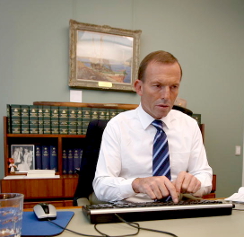Self-checking could cut misinformation
 Australian experts suggest a potential solution to the rampant spread of misinformation on social media.
Australian experts suggest a potential solution to the rampant spread of misinformation on social media.
A new paper proposes that making users declare their belief in the truthfulness of news stories before sharing them could significantly reduce the sharing of false information.
This strategy, known as ‘self-certification’, involves users affirming that they believe a post is true prior to sharing it.
The research team tested two types of prompts among study participants.
The first prompt, referred to as the 'accuracy prompt', simply asked participants whether they believed a post was true before giving them the option to share it.
The second prompt was the self-certification method, where participants were explicitly told that they could only share posts they believed to be true.
The findings indicate that participants in the self-certification group were less likely to share misinformation compared to those in the accuracy prompt group and a control group that received no prompts.
Interestingly, the accuracy prompt group did not show a significant reduction in the sharing of misinformation; participants often chose to share posts they acknowledged as false.
Despite the possibility that users might lie about their beliefs, the researchers highlight the potential of self-certification as a method worth exploring.
The study found no evidence that participants lied about their beliefs in the self-certification condition.
In fact, this approach appeared to curb the dissemination of false information effectively.








 Print
Print